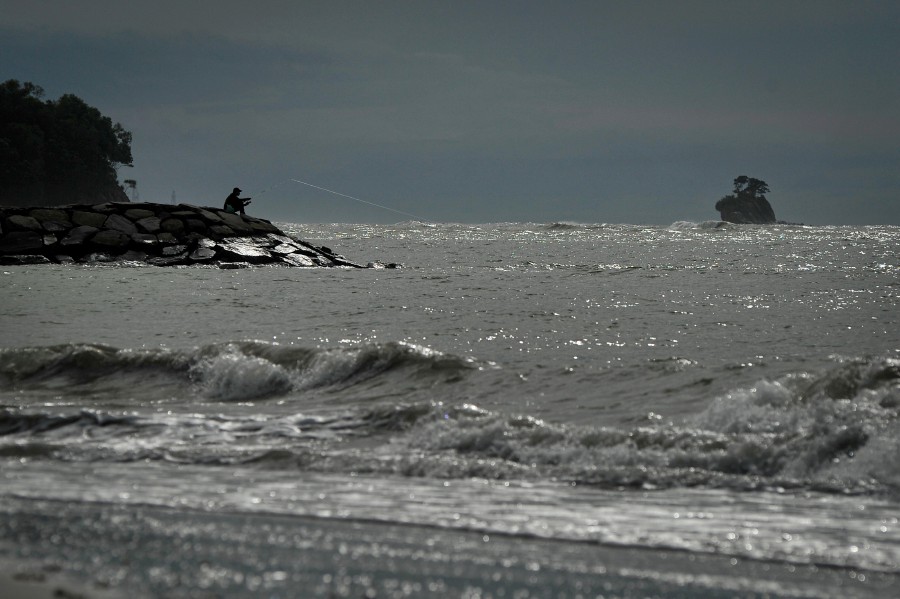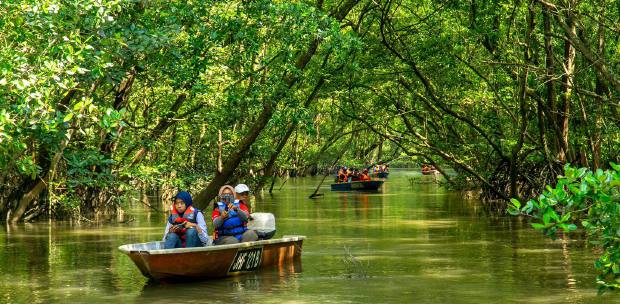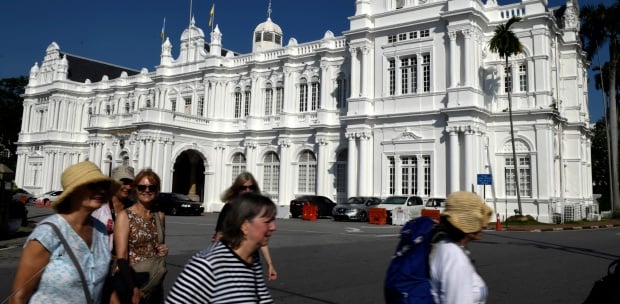IT was welcome news this week when Prime Minister Tan Sri Muhyiddin Yassin officiated at the virtual launch of the 10-year National Tourism Policy, which aims to regenerate one of our most important industries and the one worst hit by the Covid-19 pandemic.
Tourism, Arts and Culture Minister Datuk Seri Nancy Shukri hopes that through the policy, focus will be given to sustainable tourism and increased revenue.
With one in four jobs in Malaysia related to tourism, the prime minister noted, and facing losses of more than RM100 billion, the policy offers the industry much needed help.
"The government is aware and sensitive to the big hurdles faced by industry players," he said, adding that the United Nations World Tourism Organisation predicts the recovery of the global tourism sector in about two to four years.
This is a long time and will definitely be a big challenge to those involved directly and indirectly.
The prime minister underlined the staggering size of our tourism sector — the third biggest contributor to Malaysia's gross domestic product (GDP), RM240.2 billion, or 15.9 per cent of GDP, eclipsed only by manufacturing and commodities.
The sector employs 3.6 million people, or 23.6 per cent of our total labour force.
"At the initial stage, we can regenerate the tourism industry by activating domestic tourism as the borders are still closed and return the confidence of our people to visit domestic tourism sites," said Muhyiddin.
The National Tourism Policy 2020-2030, he said, has six main strategic thrusts: administration transformation; inclusive tourism investment zones; consolidating tourism digitalisation; enhancing demand sophistication; reinforcing commitment to sustainable and responsible tourism; and, upgrading skills and human capital in all tourism sub-sectors.
Elaborating on the digitalisation of the sector, the prime minister noted the importance of digital technology in achieving the policy's objective, strengthening the industry network and creating opportunities for innovative tourism sub-sectors, which in turn can create business and job opportunities.
As well, "under this policy, Malaysia will set up inclusive tourism investment zones to increase public and private cooperation as well as attract more local and foreign investors".
Of special note to me were the prime minister 's comments on sustainable tourism. As a responsible government, he said, it was important to balance development, protection and preservation of the country's treasures — our environment, culture and heritage.
"I believe the preservation of resources can spur new economic growth and create job opportunities. This policy is part of our efforts in Malaysia's commitment to the United Nation's Sustainable Development Goals," said Muhyiddin.
Nancy also hopes that this policy will make Malaysia the preferred eco-tourism destination of the world based on the natural attractions Malaysia has to offer.
While technologies such as those discussed in the context of the Fourth Industrial Revolution will be important, we must be savvy too to realise that resources and assets —notably our rich biodiversity — are the basis of the growing eco-tourism sub-sector in Malaysia, attracting visitors to delight in the surroundings of our natural wonders.
Well-managed national parks, biological reserves and other such areas create benefits beyond financial rewards. Protected natural areas raise our awareness of environmental values and contribute to our health and wellbeing in countless other ways.
A fine example to emulate is Costa Rica, where eco-tourism is a major economic engine. The country is among many developing nations that look to meet the growing demand for this popular trend of travel.
The National University of Costa Rica estimates that eco-tourism revenues rose 48 per cent between 2009 and 2016.
It is no coincidence then that Costa Rica is co-chairing with France and the United Kingdom the High Ambition Coalition (HAC) for Nature and People, an intergovernmental group of more than 45 countries, championing a global deal to halt the accelerating loss of species and protect vital ecosystems — the source of economic security.
The HAC is supporting the Campaign for Nature's call to protect at least 30 per cent of lands and oceans by 2030 to secure the future of all life on Earth.
As one of the 12 mega diverse countries of the world, it is imperative that Malaysia considers being a member of the HAC.
Let us make sure that we are known as a country that not just professes, but practises sustainable development, i.e. a nation that meets our socio-economic priorities without compromising the ability of future generations to do likewise by undermining our nation's priceless environment.
The writer is ambassador and science adviser to the Campaign for Nature and one of the 2017 Asean Biodiversity Heroes






